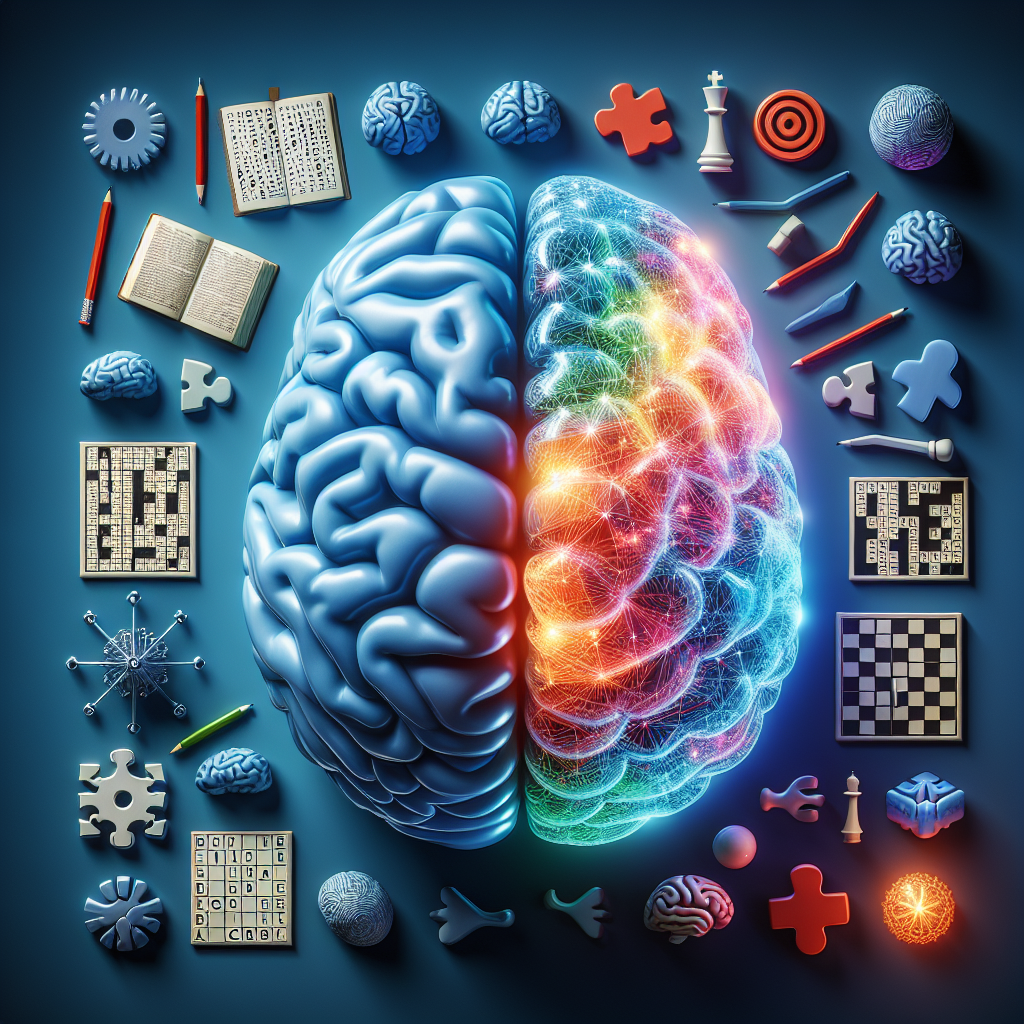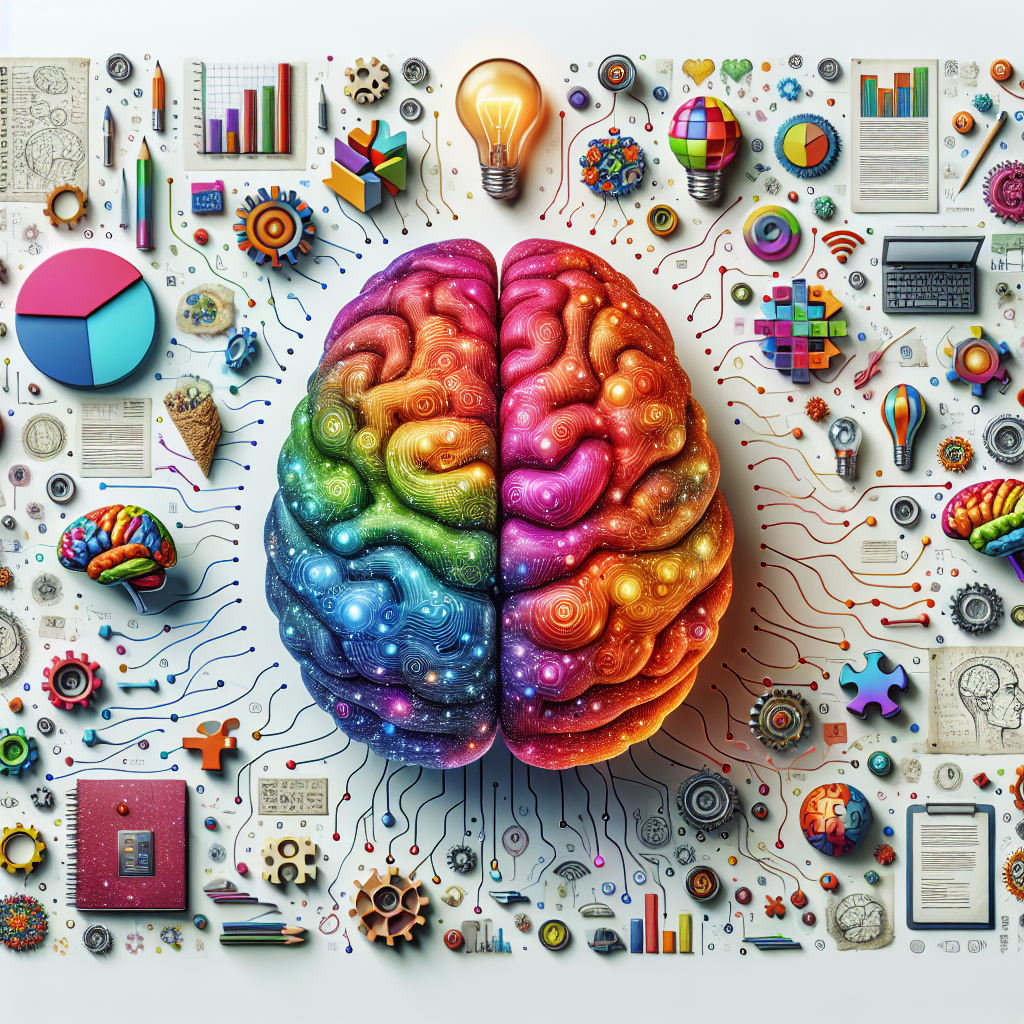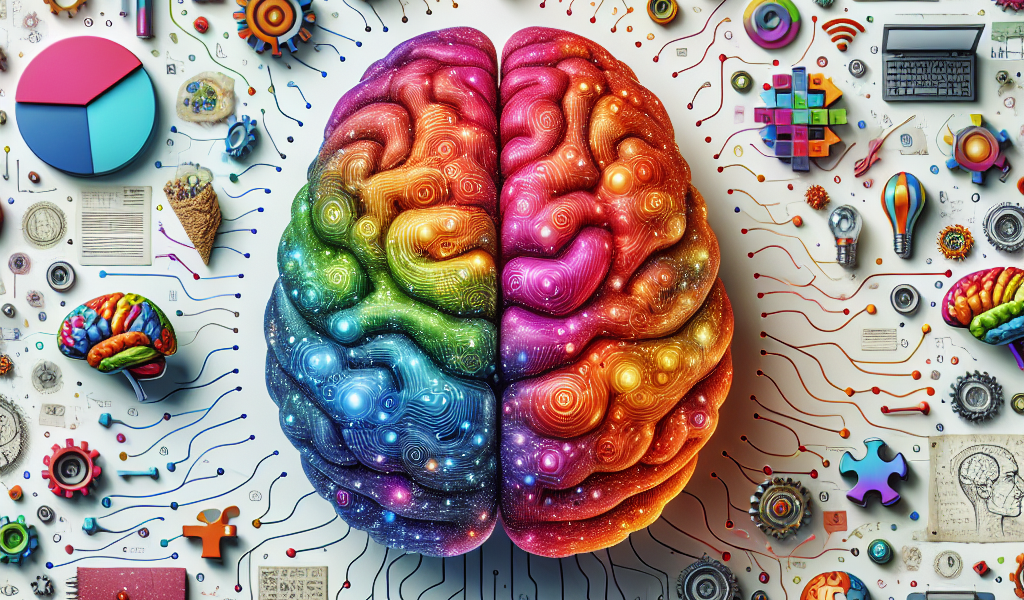Are There Specific Brain Training Exercises That Target Certain Cognitive Functions, Such As Working Memory Or Decision-making?
As you eagerly seek to optimize your brain performance, you might have a burning question ticking around in your mind. You might be curious about whether specific brain training exercises can target certain cognitive functions, like working memory or decision-making. In the unfolding lines of this article, you’ll be guided through a thorough exploration of the most effective cognitive enhancement protocols and get to know how you can tailor them to your unique cerebral demands. Help yourself to unlock the immense power of your brain.

Working Memory and Its Importance
Understanding the concept of working memory might seem challenging at first, but bear with us. Imagine a cognitive workspace where you can hold information for a short period while processing or manipulating it. That’s your working memory! It’s the ability you use when you’re making calculations in your head or recalling directions while driving.
Understanding the Concept of Working Memory
Working memory is distinct from short-term memory. Straight-up memorization (think, repeating a phone number again and again until you dial it) isn’t the same as holding onto information while simultaneously using it. The latter is what working memory is about – it’s dynamic, flexible, and critical for our cognitive abilities.
Role of Working Memory in Cognitive Processes
Working memory plays a vital role in cognitive processes like problem-solving, decision-making, and learning. It’s what allows you to follow a conversation or read a book, keeping track of what has been said, or what happened in the last chapter.
The Impact of Weak Working Memory
If you’re finding it hard to follow instructions, understand complex tasks, or frequently losing your train of thought, chances are, your working memory might be weaker than you’d like. A weak working memory can lead to struggles in learning or maintaining focus and can significantly influence your academic or professional performance.
Brain Training for Working Memory
Now, the question arises, can you train your brain to enhance your working memory? Absolutely!
Effective Exercises for Enhancing Working Memory
Specific exercises, like “n-back” games, mental arithmetic, and memory recall activities can boost your working memory. These exercises push you to focus, process, store, and recall information – improving your everyday cognitive functions a notch higher.
Frequency and Duration of Training
The frequency and duration of the training plays a crucial role in improving your working memory. Incorporating these exercises into your daily routine, even just a few minutes a day, can lead to significant improvements over time.
Evidence of Effectiveness of Working Memory Training
Various studies have shown that brain training exercises improve working memory. They demonstrate a positive effect not just on working memory itself, but also on related cognitive functions like attention and multitasking skills.
Impact of Age on Working Memory
Ageing is a natural process, and it comes along with changes in our working memory.
Changes in Working Memory with Aging
As we age, our working memory tends to decline, which can influence our mental agility, comprehension, reasoning ability, and problem-solving skills.
Brain Exercises for Seniors to Enhance Working Memory
Just as physical workouts maintain muscle strength with ageing, brain exercises can help seniors maintain cognitive health. Tasks that involve organizing information, recalling details, or juggling multiple pieces of data can enhance working memory in older adults.
Studies Supporting the Impact of Brain Training on Working Memory in Older Adults
Research has shown that seniors who engage in regular Cognitive Training see improvements in their working memory. Brain training influences neuroplasticity, promoting the growth of new brain cells and reinforcing existing connections, regardless of age.

Decision-Making and Its Cognitive Basis
Decision-making is another critical cognitive function that impacts our lives daily.
Understanding the Process of Decision-Making
Decision-making, in its simplest form, involves choosing one option among several possibilities. It’s part of our executive functions, managed by our prefrontal cortex, and is a complex process that often depends on our memory, past experiences, future expectations, and emotional state.
The Role of the Brain in Decision-Making
Our brain is the powerhouse that facilitates choice. Various brain structures, including the prefrontal cortex, basal ganglia, and amygdala, work together to evaluate alternatives and make decisions. These structures process diverse information – from logical data to emotional input – enabling you to make informed decisions.
Factors Influencing Decision-Making Abilities
Various factors, including stress, anxiety, lack of sleep, and poor nutrition, can hamper your decision-making abilities. Additionally, your cognitive functions like attention, memory, and processing speed also influence the way you make decisions.
Brain Training for Decision-Making
Similar to working memory, decision-making abilities can also be fine-tuned with brain training.
Brain Exercises Targeting Decision-Making
Brain exercises targeting decision-making focus on enhancing cognition and sharpening problem-solving skills. These include strategic games, scenario-based exercises, and exercises focusing on quick decision-making under pressure.
How Regular Training Can Enhance Decision Making
By regularly engAging in these exercises, you can enhance your ability to evaluate alternatives, perceive potential outcomes, and make better, timely decisions.
Existence of Scientific Evidence Supporting Decision-Making Training
Science has shown us that training our brains can indeed enhance our decision-making skills. Studies have found cognitive improvements in decision-making after consistent engagement in brain training exercises.
Emotional Intelligence and Decision Making
Emotional intelligence, your ability to recognize, understand, and manage your emotions and those of others, plays a significant role in decision-making.
Correlation Between Emotional Intelligence and Decision-Making
Research has shown a positive correlation between high emotional intelligence and effective decision-making. People with high emotional intelligence tend to be better at assessing situations and making thoughtful, informed decisions.
Exercises to Improve Emotional Intelligence for Better Decision-Making
Mindfulness and meditation exercises, empathetic communication drills, and emotion identification exercises are some of the activities that can improve your emotional intelligence, thereby positively influencing your decision-making skills.
Research on the Impact of Emotional Intelligence Training on Decision Making
Studies show that emotional intelligence training enhances decision-making competence. One’s ability to understand and manage emotions helps to provide clarity during decision-making, resulting in more effective and satisfied choices.
Neuroplasticity and Brain Training
Neuroplasticity is the brain’s remarkable ability to reorganize itself by forming new neural connections throughout life.
Understanding the Concept of Neuroplasticity
At a fundamental level, neuroplasticity is your brain’s way of learning from experience. It provides the infrastructure for your brain to change and adapt by forming new connections and reinforcing existing ones.
The Role of Neuroplasticity in Brain Training
Brain training exercises work by leveraging neuroplasticity. They challenge your brain, prompting it to build new neural pathways. This flexibility of the brain is what allows training exercises to enhance cognition and improve mental performance.
Studies Examining the Relationship Between Brain Training and Neuroplasticity
Studies have shown that the brain changes and improves in response to mental training. This process involves neuroplasticity, which allows nerve cells in the brain to compensate for injury and disease and to adjust their activities in response to new situations or to changes in their environment.
Critiques and Controversies of Brain Training
As with any field, brain training isn’t without its criticisms and controversies.
Debate Over the Effectiveness of Brain Training
Some experts argue that while brain training can improve performance on the skills being trained, this improvement doesn’t necessarily translate to overall cognitive ability or day-to-day activities.
Risks and Potential Harm of Brain Training
If misused or overdone, brain training can potentially lead to mental fatigue, stress, and burnout. Also, relying too much on brain training – at the expense of other crucial elements like physical activity, a balanced diet, and social interaction – can be counterproductive.
Addressing the Criticisms of Brain Training
Despite the criticisms, many experts still advocate for brain training as part of a holistic approach to cognitive health. They argue that while brain training isn’t a magic bullet, it can contribute to overall brain health and function when combined with other lifestyle factors.
Role of Lifestyle Factors in Cognitive Functions
Speaking of which, your lifestyle and the choices you make every day significantly impact your cognitive abilities.
Influence of Diet on Cognitive Functions
Your brain is an energy-intensive organ that needs nutrient-dense foods to function optimally. A diet rich in Omega-3 Fatty Acids, antioxidants, B vitamins, and other whole foods can support brain health and cognitive functions over time.
The Impact of Physical Exercise on the Brain
Physical exercise is vital for cognitive health. It helps promote neuroplasticity, reduce the risk of cognitive decline, and enhance memory and mood. Even casual walking or light aerobic exercise can have positive impacts on your brain.
Effect of Sleep Quality on Cognitive Abilities
Never undermine the importance of a good night’s sleep. Lack of quality sleep can impair your working memory, curb creativity, and wreak havoc on your cognitive abilities. Prioritizing sleep is an essential part of maintaining brain health.
Future of Brain Training and Cognitive Enhancement
The future of brain training seems promising as we continue our scientific exploration into how the brain works and how we can optimize its functioning.
Emerging Trends in Brain Training
New trends are continually emerging in the brain training industry. From virtual reality-based training programs to ones that use biofeedback mechanisms, the future of brain training holds immense potential.
Role of Technology in Cognitive Enhancement
Technology is reshaping the way we train our brains. Machine learning and artificial intelligence are being used to personalize brain training programs. These advancements make brain training more effective and accessible than ever before.
Predictions for Future Research and Developments in Cognitive Training
As we gather more research and understanding, we can expect even more advanced and effective cognitive training techniques in the future. The potential Benefits of optimally training our brains are endless, from delaying cognitive decline and improving academic or work performance to enhancing our daily life. The future indeed holds exciting promise.
In conclusion, whether it’s working memory, decision-making, or overall cognitive enhancement, brain training offers an avenue to improve these skills and abilities. Like any form of training, consistency, and a balanced approach is key. As we move forward, breakthroughs in neuroscience and technology promise an even brighter future for brain training. Just imagine what you could accomplish if you could unlock your brain’s full potential.

